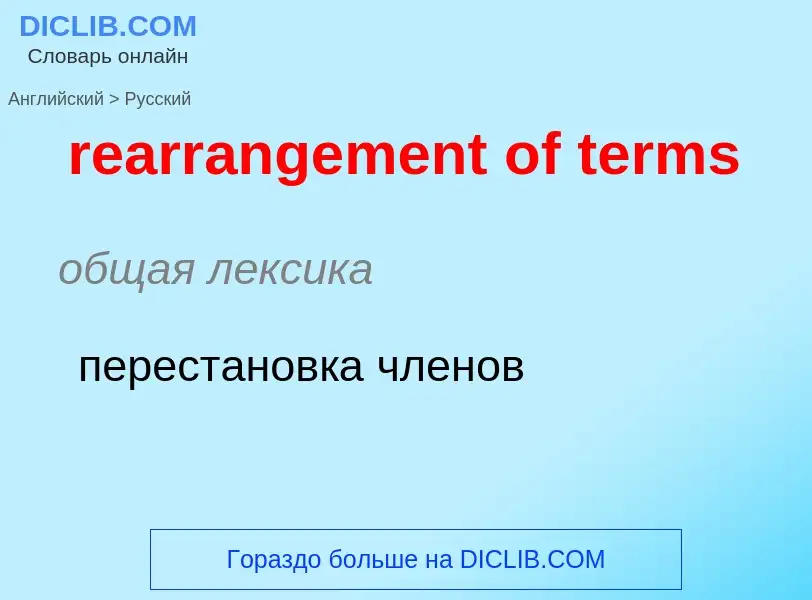Перевод и анализ слов искусственным интеллектом ChatGPT
На этой странице Вы можете получить подробный анализ слова или словосочетания, произведенный с помощью лучшей на сегодняшний день технологии искусственного интеллекта:
- как употребляется слово
- частота употребления
- используется оно чаще в устной или письменной речи
- варианты перевода слова
- примеры употребления (несколько фраз с переводом)
- этимология
rearrangement of terms - перевод на русский
общая лексика
перестановка членов
[ə'bɑ:ft]
наречие
[ə'bɑ:ft]
общая лексика
на корме, в сторону кормы, с кормы
морской термин
на корме или по направлению к корме
предлог
общая лексика
сзади, позади
морской термин
сзади
позади
за
['bi:msi:]
общая лексика
боковая волна
морской термин
волны
почти перпендикулярные курсу судна
волна с траверза
Определение
.
Википедия
In mathematics, the Riemann series theorem (also called the Riemann rearrangement theorem), named after 19th-century German mathematician Bernhard Riemann, says that if an infinite series of real numbers is conditionally convergent, then its terms can be arranged in a permutation so that the new series converges to an arbitrary real number, or diverges. This implies that a series of real numbers is absolutely convergent if and only if it is unconditionally convergent.
As an example, the series 1 − 1 + 1/2 − 1/2 + 1/3 − 1/3 + ⋯ converges to 0 (for a sufficiently large number of terms, the partial sum gets arbitrarily near to 0); but replacing all terms with their absolute values gives 1 + 1 + 1/2 + 1/2 + 1/3 + 1/3 + ⋯, which sums to infinity. Thus the original series is conditionally convergent, and can be rearranged (by taking the first two positive terms followed by the first negative term, followed by the next two positive terms and then the next negative term, etc.) to give a series that converges to a different sum: 1 + 1/2 − 1 + 1/3 + 1/4 − 1/2 + ⋯ = ln 2. More generally, using this procedure with p positives followed by q negatives gives the sum ln(p/q). Other rearrangements give other finite sums or do not converge to any sum.

.png?width=200)



